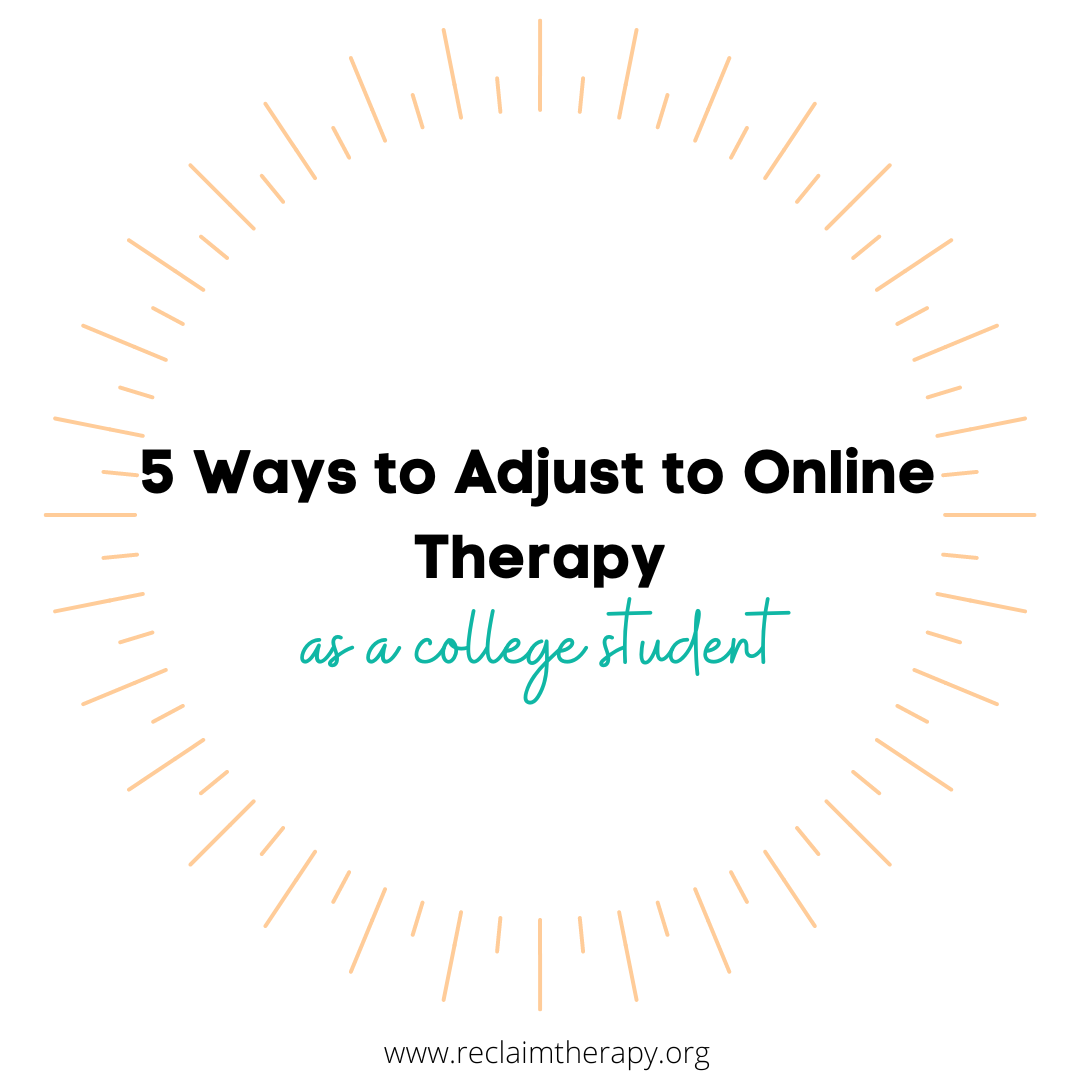
Understanding the Freeze Trauma Response
The most common state of the human nervous system today is the freeze response.
This state can manifest on a spectrum, from a high-functioning freeze to a more collapsed, shut-down state.

Why Trauma Makes It Hard to Read Situations and People
Polyvagal Theory Explained Part 2
Neuroception: Detecting Signs of Safety and Danger in the Wake of Trauma
Welcome to part II of “What Even is Nervous System Regulation Anyway?”. In my last blog post, I talked about the nervous system and why it’s gaining a lot of attention these days.

Wegovy, Ozempic and Eating Disorders Recovery
Recently I encountered that world at a Fourth of July barbeque. The topic of conversation among the women of the party?
Weight loss drugs.
Specifically, Wegovy.

5 Ways to Adjust to Online Therapy as a College Student
Moving to college, whether as a freshman or returning student, comes with plenty of challenges and adjustments to make. One of those challenges that is often overlooked is switching from in-person therapy to online therapy sessions.

How to Support Someone With An Eating Disorder
For loved ones of people struggling with eating disorders, providing the right support is crucial, yet can be very challenging.
This blog post hopes to equip you with the knowledge and tools to start to support your loved one through their recovery process.

The Link Between Binge Eating and CPTSD
Understanding the intricate connection between binge eating and complex post-traumatic stress disorder (CPTSD) is crucial in your journey toward healing and recovery

What Is Nervous System Regulation
What even is “nervous system regulation”? It’s a bit of a buzz-phrase these days, thanks to social media, which has its benefits and challenges.

Can EMDR Help with Eating Disorders?
While traditional therapies like Cognitive Behavioral Therapy (CBT) have been the cornerstone of treatment for many, Eye Movement Desensitization and Reprocessing (EMDR) is gaining attention for its potential to address the traumatic roots of disordered eating.

5-Weekend Activities in Horsham, PA that Support Your Eating Disorder Recovery
Welcome to Horsham, PA, where weekends aren't just about unwinding but also about nurturing your journey towards eating disorder recovery. Engaging in activities that support your well-being and foster a positive relationship with food can make a significant difference in your healing process.

What is Somatic Experiencing and How Does It Help in Trauma Therapy
Every day, more people are seeking ways to heal from trauma.
While traditional talk therapies are well-known, there are other, sometimes less familiar approaches that are amazingly effective in the renegotiation of trauma. One such method is Somatic Experiencing (SE).

5 Places to Go When You Feel Anxious About Eating
Navigating anxiety around eating can be incredibly challenging, but finding the right environment and support can make a significant difference.

5 Tips for Eating Out in Horsham, PA: Part 2
In Horsham, PA, there's a wonderful array of dining options that cater to diverse tastes and dietary needs. Whether you’re local or just passing through, this guide aims to help you make the most of your meals out, focusing on mindful eating and self-compassion.

Trauma-Informed Eating Disorder Treatment
Navigating through the complexities of an eating disorder often involves untangling a web of emotions, behaviors, and underlying traumas. At the heart of effective treatment lies a profound understanding of how trauma shapes one's relationship with food, body image, and self-worth. This approach, known as trauma-informed care, goes beyond symptom management to address the root causes and emotional landscapes that influence eating disorders.

Eating Disorders and Childhood Trauma
Delving into the realm of eating disorders often reveals a deeper narrative shaped by childhood experiences and trauma. Many individuals on this journey toward healing uncover the profound impact of early-life adversities. Childhood trauma, whether through neglect, emotional abuse, or more overt forms of violence, leaves enduring marks on one's psyche, profoundly influencing one's relationship with food, body image, and self-esteem.

How Can Trauma Therapy Help Me as an Adult Child of an Alcoholic or Addict?
If you identify as an Adult Child of an Alcoholic and/or Addict, you might be wondering… so now what?
Could therapy help me?

What Percentage of People with Eating Disorders Have Trauma?
Understanding the link between trauma and disordered eating is crucial. Imagine trying to navigate the world while carrying the invisible weight of past wounds. For many, trauma isn't just an event; it’s a lingering ghost that understanding the link between trauma and disordered eating is crucial. Imagine trying to navigate the world while carrying the invisible weight of past wounds. For many, trauma isn't just an event; it’s a lingering ghost that haunts everyday life, making even the simplest of tasks feel insurmountable.

Everything You Need to Know About Trauma and Emotional Eating
Emotional eating isn't just about filling your stomach; it's about seeking comfort in response to challenging emotions. You may find yourself reaching for snacks to combat feelings of loneliness or monotony, seeking solace in favorite treats after a taxing day, or indulging in food when life feels dull.

How to Stop Binge Eating at Night
Binge eating at night is a challenge many people face.
This way of eating involves consuming a lot of food rapidly until you feel uncomfortable. Afterward, you may experience feelings of guilt and shame. It can become a cycle of behaviors that can feel hard to end or escape.

How Trauma Affects Relationships
When we’ve experienced trauma, the wounds we carry run deep and wide and often impact our ability to be in a relationship.
Deep down we wonder why it’s so hard to form close bonds with others.
We struggle to trust anyone.

ACA Laundry List Through the Lens of a Trauma Therapist
Here at Reclaim Therapy we view trauma symptoms as adaptive strategies that were once necessary for survival.
The strategies that were most helpful are the ones that often stick with us and show up in the present.
